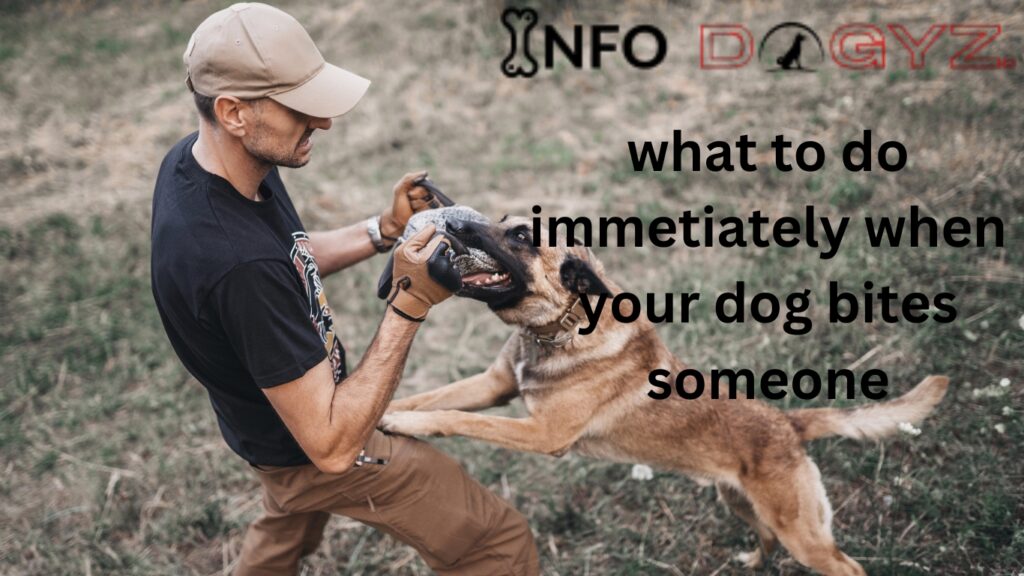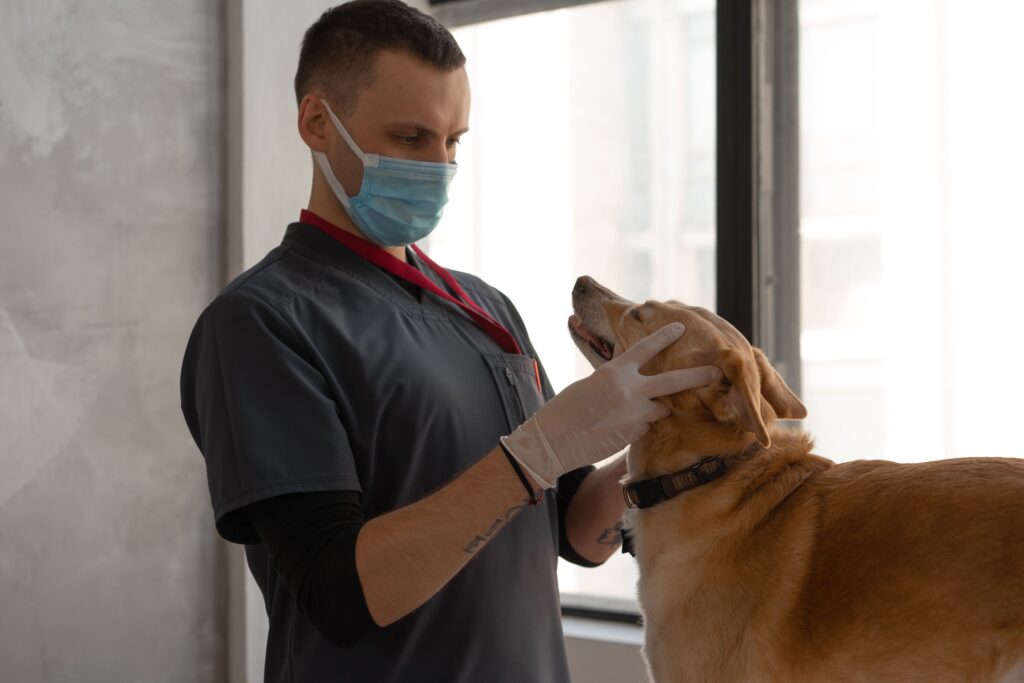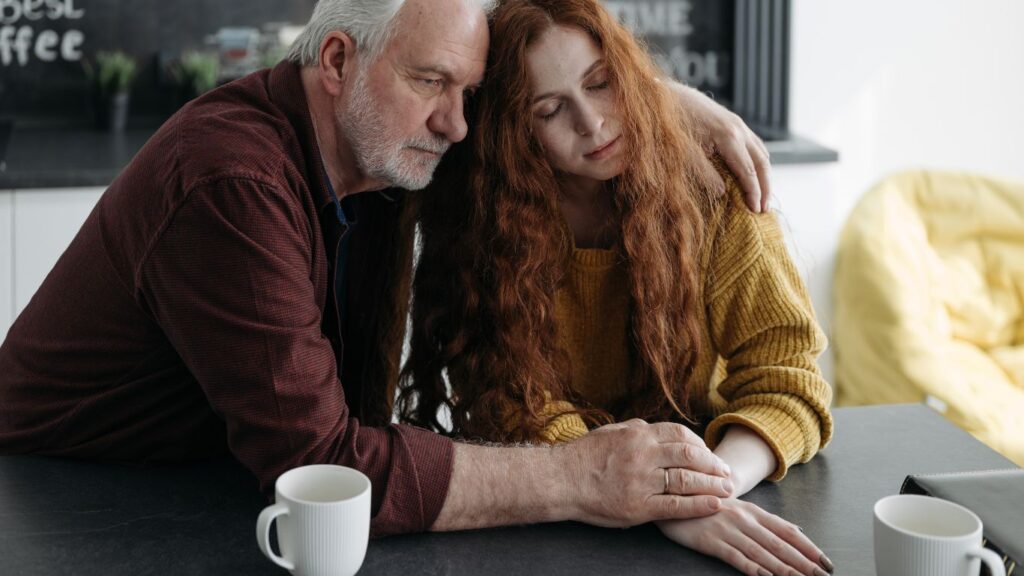Table Of Contents
What Does It Mean When A Dog Bites Someone?
Numerous individuals and families benefit significantly from dog ownership in joy and connection. However, as responsible dog owners, we must be mindful of the hazards and consequences that come with our canine companions. In this tutorial, we will discuss what to do when your dog bites someone.
Understanding the gravity of dog attacks is essential for any dog owner. While most dogs are friendly and pose no threat, each dog can bite under specific conditions. Even a tiny bite can cause physical and emotional harm to the sufferer. Dog bites can cause life-threatening injuries in severe circumstances.
In addition to having a moral responsibility when your dog bites someone, dog owners have a legal obligation to protect others. Beyond the walls of our houses, dog owners have ethical and legal obligations. Different jurisdictions have different laws and rules governing dog bites, but owners are generally expected to take the appropriate precautions to stop their dogs from hurting others. If these obligations are not met, there may be legal repercussions, such as fines, limitations on pet ownership, or even the dog’s execution.

In this guide, we will discuss the actions you should take right away following a dog bite event to guarantee the safety of both the victim and your dog, as well as the ethical and legal implications of the scenario. You may manage this problematic issue with empathy, integrity, and the required information to protect everyone concerned by realizing the gravity of dog bites and accepting your duties as a dog owner.Remember that the best action is to prevent dog attacks through good pet ownership. Therefore, it is essential to be organized and knowledgeable. The crucial steps to take when your dog bites someone will now be discussed.
Assessing The Situation For ‘What To Do When Your Dog Bites Someone
Safety must always come first when your dog bites someone, and you must get emergency medical help immediately. Recognizing the seriousness of the situation and acting will help reduce any possible harm and guarantee the safety of all parties involved.
The first and most crucial step is to put safety first. If your dog bites someone, it is essential to guarantee that person’s security by immediately removing them from danger. Next, evaluate the injury’s seriousness and, if required, call for emergency medical help. It is crucial to make a mistake on the side of caution and seek medical assistance immediately because even tiny bites can carry the danger of infection or problems.
Information collected regarding the incident is also essential to appropriately analyze the situation. Speak with the victim of the bite as well as any on-site witnesses. Obtain their names and addresses and a thorough narrative of the events leading up to and occurring during the incident. Note any aggravating factors contributing to the incident, such as provocation, the dog’s actions before biting, and mitigating circumstances. Sharing this information with medical professionals, law enforcement, and, if required, legal counsel will help understand the incident’s background.
It is also critical to collect information about your dog’s medical history, including immunizations and any previous incidences of aggression. This information will be helpful when addressing the occurrence with medical personnel and authorities. Consider hiring a professional dog trainer or behaviorist to analyze your dog’s behavior and address any underlying issues that may have contributed to the bite.
You must respond quickly to prioritize safety and gather information when your dog bites someone. By doing so, you can help to ensure the injured person’s well-being, accurately assess the issue, and take the necessary steps to prevent similar situations in the future.
Professional Guidance On Managing Dog Bites Immediately
The safety of all persons involved depends on how the immediate aftermath of a dog bite occurrence is handled. As soon as when your dog bites someone, it would help if you acted to treat the incident and reduce any potential damage. Now, if you are looking for what I can do when your dog bites someone, you have to consider these two crucial factors: reporting the occurrence to the appropriate authorities and safeguarding the victim’s, your own, and others’ safety.
First and foremost, it’s crucial to contact the local authorities and report the occurrence. This process aids in documenting the incident and guarantees that the proper paperwork is in place. Inform the local police or animal control agency about the dog bites immediately and give them complete details of the incident. This enables them to evaluate the circumstance and offer the necessary advice. Be helpful and provide the authorities with any information they may need. When your dog bites someone then follow the reporting procedure which may promotes smoother resolution and maintains transparency.
Second, put the victim’s, your own, and other people’s safety first. Make sure the victim gets any necessary immediate medical care first. Dog bites can result in wounds varying in severity from less severe cuts and scratches to more serious damages. Even if the injuries seem small, encourage the victim to get medical attention because infections or other consequences can develop later. Offer assistance in getting the sufferer to a hospital if necessary.
Concurrently, When your dog bites someone then evaluate the security of your immediate environment and take action to stop any further incidents. Put your dog in a secure space by isolating it or using a leash. Nobody else may be bitten. To prevent the situation from worsening, maintain a calm and collected demeanor. Avoid arguing or discussing who is at fault or who bears liability since feelings may be running hot.
Keep in mind that managing the immediate aftermath of a dog bite occurrence entails proactive communication with local authorities as well as placing a priority on everyone’s safety. By doing these actions, you can contribute to ensuring a timely and suitable response to the occurrence while also displaying a responsible handling of the circumstance.
Taking Responsibility As A Dog Owner
Being a responsible dog owner entails realizing how crucial it is to handle the situation when your dog bites someone, mainly when it attacks someone:
- Prioritize the injured person’s health by ensuring they receive any essential prompt medical care. After that, compile details about the occurrence, including any witnesses or supporting documentation.
- Provide all necessary information to the authorities, including immunization records and contact details. To evaluate the problem and implement the correct training methods, speak with a qualified dog trainer or behaviorist. Secure your dog, use muzzles if required, and think about seeking expert assistance to prevent future incidents.
- To ensure the security and welfare of your dog and the community, continue your education and adopt proper dog ownership habits.
Understanding Why Dogs Bite And Recognizing Potential Triggers
Understanding why dogs bite and identifying potential triggers are part of being a responsible dog owner. Dogs can bite when scared, in pain, or trying to defend their territory or resources. It is essential to find and treat these underlying problems to stop further instances. It can be easier to control circumstances and ensure everyone’s safety if you can identify triggers like unexpected movements, loud noises, or strange people.
To lessen our dogs’ anxiety and hostility, we, as responsible owners, must prioritize healthy socialization, obedience training, and frequent exercise. Getting expert advice, such as from a dog behaviorist, can be very helpful in preventing dog bites and guaranteeing the safety of both our pets and other people.
Seeking Professional Help From A Veterinarian Or Animal Behaviorist
Knowing what to do when your dog bites someone is part of being a responsible dog owner. Getting expert assistance from a veterinarian or animal behaviorist is a crucial first step. These professionals can evaluate the circumstance and advise on controlling your dog’s behavior. In addition, they can provide training methods or behavior modification strategies and assist in identifying the source of the hostility.
Asking for help demonstrates a commitment to resolving the problem and avoiding further incidents. They can also advise you on responsible dog management, such as how to socialize your dog appropriately, train them, and control their environment to reduce dangers. Accepting this obligation indicates concern for the safety of others and your dog.

Legal Implications And Liability When Your Dog Bites Someone
It’s crucial to comprehend the legal ramifications and potential culpability when your dog bites someone. This article offers advice on three essential areas:
- Being aware of local rules and ordinances
- Understanding liability and possible repercussions for dog owners
- Looking into insurance coverage alternatives
It’s essential to know your area’s canine bite rules and regulations. Since laws might differ significantly from jurisdiction to jurisdiction, you must get familiar with the regulations in your place. For example, in some states, dog owners are strictly liable for any injuries brought on by their animals, regardless of whether they were aware of the dog’s history of biting. Other legal systems depend on somebody carelessness and demand evidence that the dog’s owner knew or ought to have known about the dog’s hostile behavior. You can navigate the legal system more successfully if you know these statutes.
The owner of the dog that bites someone may be held responsible and subject to repercussions. Civil cases that seek restitution for medical costs, pain and suffering, and other harms brought on by the bite can be among them. However, if the situation is severe, the owner might face criminal charges, especially if the dog has a history of aggressiveness or the owner failed to restrain or control the animal properly. Understanding the potential legal repercussions and developing an effective defense need consulting with a lawyer focusing on dog bite cases.
Another crucial factor is looking into insurance coverage possibilities. For example, insurance policies for renters or homeowners frequently include liability protection for dog bites. However, some insurance providers cannot cover certain breeds or have specific coverage restrictions. Therefore, reviewing your insurance policy is essential to determine whether and how much you are covered. Additionally, to comply with any reporting obligations, it is advised to tell your insurance provider of the occurrence immediately.
In conclusion, it’s critical to understand the legal ramifications and responsibilities involved when your dog bites someone. You can manage the scenario more successfully if you know your local rules and regulations, comprehend potential implications and look into insurance coverage choices.
When Your Dog Bites Someone Deal With The Emotional Impact
Dealing with the emotional effects when your dog bites someone can be difficult. The injured person’s well-being must come first, and assistance must be immediately given. To avoid making things worse, maintain your composure. Contact medical professionals and acquire the data required for any conceivable insurance or legal requirements. Recognize that you might feel various feelings, such as guilt, dread, or anxiety. Ask for assistance from dependable family members, friends, or experts who can provide direction and reassurance.

Consider the situation in light of any variables that may have led to the bite and take action to stop similar incidents in the future. To promote healing and provide a secure environment for all parties, remember that dealing with emotional fallout is crucial.
Coping With Guilt And Shame As A Dog Owner
In particular, managing guilt and humiliation as a dog owner can make dealing with the emotional fallout when your dog bites someone is difficult. Before anything else, accepting your emotions and realizing that accidents can occur is critical. You are not alone; therefore, be bold and ask for help from friends, family, or experts. Ensure your dog receives the proper training and behavior correction to help you take responsibility for the occurrence
To avoid similar situations in the future, educate yourself on canine behavior. Last but not least, make amends by apologizing to the person who was bitten and doing everything you can to ensure their well-being.
Seeking Support From Friends, Family, Or Support Groups
It might be challenging to handle the emotional effects when your dog bites someone. During this trying period, it’s imperative to have help from friends, family, or support groups. Talk to dependable family members who can reassure and understand you about your feelings. They might provide insightful counsel or act as a listening ear.
Support groups designed especially for dog owners can also be helpful because they offer a secure setting for sharing your experiences and picking the brains of others who have gone through comparable circumstances. In addition, getting support might help you better manage the incident’s aftermath and the emotional processing of your feelings.
Considering Therapy Or Counseling For Emotional Healing
Being emotionally affected when your dog bites someone might be difficult. However, moving forward requires that you recognize and deal with your feelings. To deal with the complicated emotions that result from such an event, think about therapy or counseling. A therapist can offer a secure and nonjudgmental environment to examine your feelings, comprehend the underlying causes, and create coping mechanisms. Additionally, they may advise how to stop future occurrences and guarantee the safety of your dog and others. The path to mental healing and responsible dog ownership begins with seeking professional assistance.
Preventing Future Incidents After Dog Bites
The victim and you may find it upsetting when your dog bites someone. However, it is essential to act immediately to stop related occurrences from happening again and guarantee everyone’s safety. You can address the root reasons, encourage appropriate socialization and training, and adopt safety precautions at home and in public by adhering to these crucial steps.
Priority should be given to locating and treating any underlying health issues in the dog. For example, a dog may act if it is in pain, uncomfortable, or has an unidentified medical problem. A veterinarian must be consulted to rule out potential health issues and administer the proper care if required. You can lessen the dog’s hostility by dealing with these underlying problems.
Another essential component of reducing dog bites is ensuring good socialization and training from a young age. Early socialization lessens fear and hostility by acclimating the dog to various people, animals, and settings. To address behavioral difficulties and encourage positive behavior, enrolling your dog in obedience lessons or obtaining advice from a professional trainer can provide valuable tools and approaches.
Preventing dog bites requires taking safety precautions at home and in public places. When guests are over, keep your dog on a leash or in a designated area and secure your yard with a solid fence. Use caution when introducing your dog to strangers, especially kids or people who aren’t comfortable with dogs. In public, always keep your dog on a leash, obey local leash laws, and be attentive to their behavior.
Good dog ownership entails ongoing observation, education, and preventative actions to minimize such incidences. You can dramatically lower the danger of dog attacks and make everyone’s environment safer by taking care of underlying health issues, giving appropriate socialization and training, and putting safety measures in place at home and in public.
when your dog bites someone, it is imperative to accept responsibility immediately. First, help the victim and, if necessary, seek medical help. Then, inform the proper authorities about the occurrence, and assist in any investigations fully.
Educating Others If Their Dog Bites Someone
Increasing awareness is essential for responsible dog ownership. Knowing what to do when your dog bites someone is among the most crucial components of this. By sharing your story, you can help prevent such occurrences and encourage a safer environment for both humans and pets. Participating in neighborhood programs to avoid dog bites is another powerful technique to inform people and bring about change.
The first step in avoiding dog bites is raising awareness about safe dog ownership. Many dog owners might need to be aware of the potential consequences of their dog’s behavior or the value of early socialization and training. You can aid in educating other dog owners about the necessity of responsible ownership by participating in conversations, distributing educational materials, or setting up workshops. This entails comprehending their dog’s behavior, picking up on warning indications, and getting expert assistance when necessary.

Sharing your personal experience might be a very effective technique to prevent similar tragedies. For example, if your dog has ever bitten someone, now is the time to talk about what happened, what you did to fix it, and what you learned from it. By being frank about the situation, you may stress how crucial it is to act immediately, such as getting the victim medical care and calling animal control or your local authorities. Sharing your story also helps people realize that even seemingly well-behaved dogs can get dog bites.
Participating in neighborhood programs to prevent dog bites offers a platform for collaboration and education. To encourage ethical dog ownership and provide resources to the neighborhood, you can join neighborhood associations or work in animal shelters as a volunteer. These programs may involve holding seminars, leading classes, or participating in public awareness campaigns. By actively participating in these projects, You can prevent dog bites and promote safer communities for both people and animals.
In conclusion, encouraging ethical dog ownership and averting future incidences need teaching people what to do when a dog bites someone. We can build a more informed and compassionate society by raising awareness, sharing personal stories, and participating in community projects.
Frequently Asked questions (FAQs)
Can you believe a canine after it bites?
After a dog bites someone, it’s vital to carefully evaluate the state of affairs. Trusting a dog after a chew relies upon various factors, together with the canine’s records, the instances surrounding the chew, and the severity of the incident. It’s crucial to seek professional recommendations from a veterinarian or an authorized canine behaviorist to evaluate the canine’s conduct and determine the proper direction of action. In a few instances, it can be possible to rebuild belief with the dog with appropriate education, behavior amendment, and responsible control. However, it’s far critical to prioritize the protection of both the canine and others while making choices.
Should I punish my dog for biting a person?
Punishing a dog for biting a person is not advocated. Reacting to punishment may worsen the state of affairs and create worry or aggression inside the canine—instead, recognition on addressing the underlying causes of the biting conduct and enforcing fantastic reinforcement education techniques. Seek steerage from experts who let you understand the primary reason for the biting and offer appropriate strategies for dealing with and editing the behavior.
How do you field a dog who bites?
Disciplining a canine who bites has to involve a compassionate and nicely-knowledgeable approach. Rather than punishment, it is critical to the cognizance of prevention and education. Identify the triggers that caused the biting incident and paint on desensitizing the canine to those triggers via behavior modification strategies. Positive reinforcement schooling, using rewards and rewards for preferred behaviors, can assist in teaching the dog suitable alternatives to biting. Consulting with a professional canine trainer or behaviorist is recommended to create a personalized schooling plan for your canine.
What is a Level 1 dog chew?
The severity of dog bites is regularly categorized into one-of-a-kind degrees. A Level 1 dog bite is a scenario wherein a dog makes physical contact with someone without breaking the pores and skin or inflicting any injury. It may contain nipping, mouthing, or mild strain without causing damage. While a Level 1 chew might not result in sizeable bodily harm, addressing the underlying conduct is essential to prevent escalation. Seeking expert steering and imposing appropriate training and control techniques can save you from future incidents and promote a safe environment for each dog and others.

